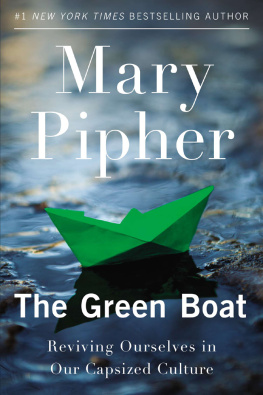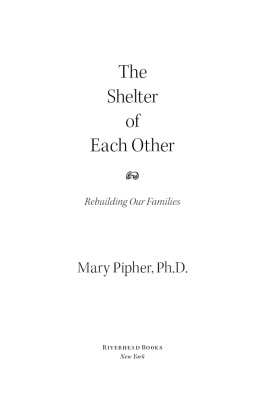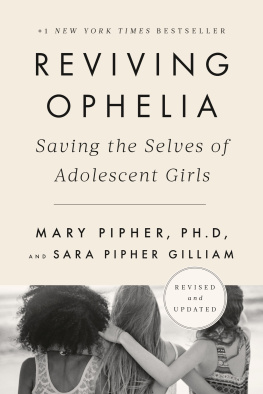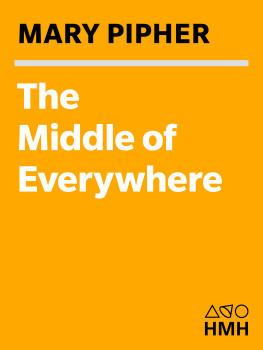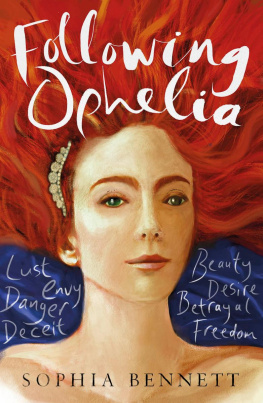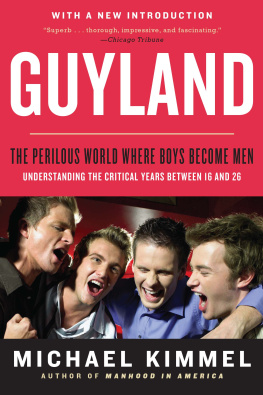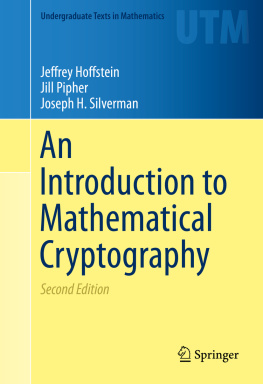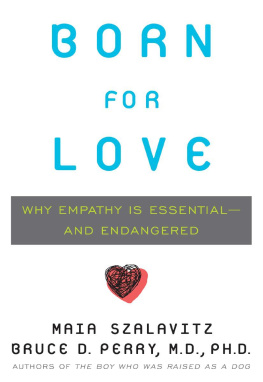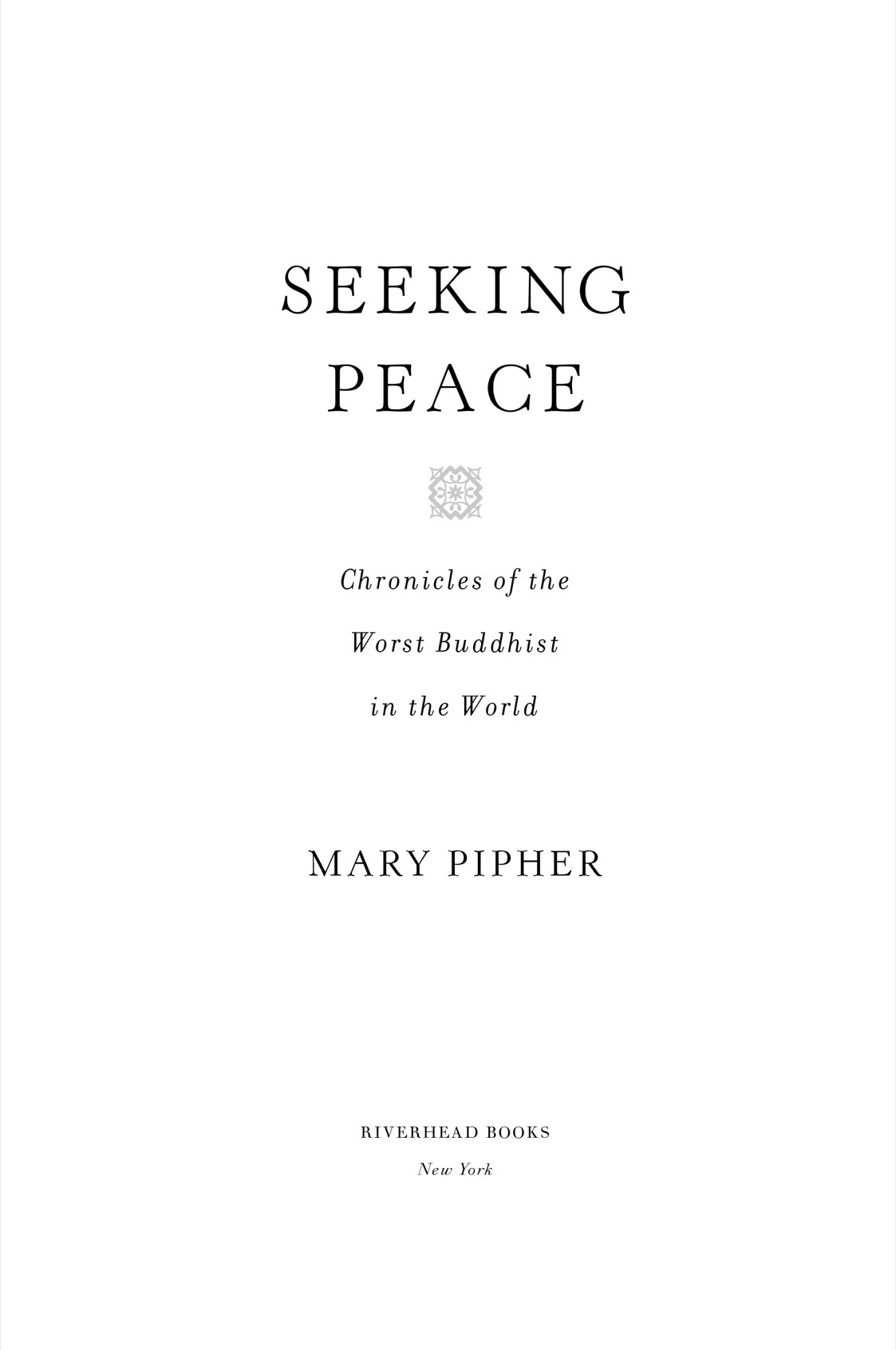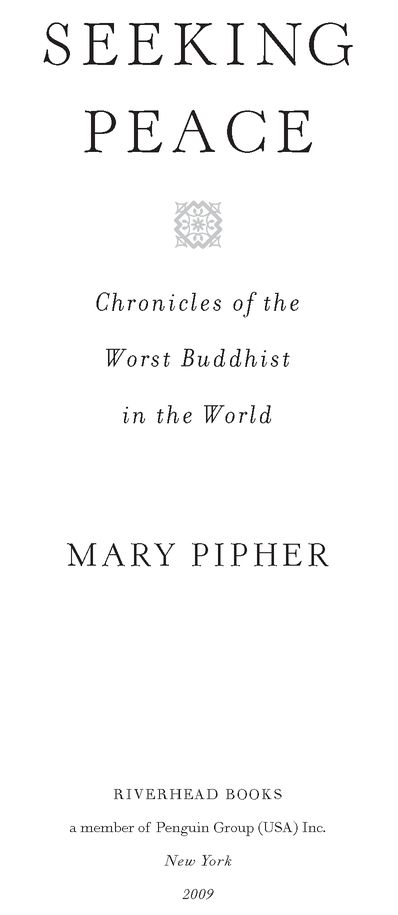Table of Contents
ALSO BY MARY PIPHER
Writing to Change the World (2006)
Letters to a Young Therapist (2003)
The Middle of Everywhere: Helping Refugees
Enter the American Community (2002)
Another Country: Navigating the Emotional
Terrain of Our Elders (2000)
Hunger Pains: The Modern Womans
Tragic Quest For Thinness (1997)
The Shelter of Each Other:
Rebuilding Our Families (1996)
Reviving Ophelia: Saving the Selves
of Adolescent Girls (1994)
To my grandparents and
their grandparents grandparents,
and to my grandchildren and
my grandchildrens grandchildren
Out of clutter, find simplicity. From discord, find harmony. In the middle of difficulty lies opportunity.
ALBERT EINSTEIN
Life is this simple: We are living in a world that is absolutely transparent and the divine is shining through it all the time.
THOMAS MERTON
PRELUDE
Let me be straight with you. I am not writing this book as an expert on inner peace. Nor am I offering sage advice from one who has been to the mountaintop. My authority does not come from being a relaxed and happy person, but rather from being a person who has sought calmness and happiness all of her life. I address you as a woman who has spent plenty of time talking herself and others down from emotional ledges.
I know about inner peace the way Nelson Mandela knew about freedom when he wrote Long Walk to Freedom. He had spent almost his entire adult life in prison on Robben Island, but he struggled every minute of his life to break the chains of his oppression. Since my girlhood, I have yearned for tranquillity. Few people have sought serenity with more ardor or have worked harder at relaxing than I have. (I do note the contradictions of that last sentence.)
The subtitle for this book was inspired by a remark my husband, Jim, made several years ago. One morning after my meditation session, I was racing around the house, stressed and spaced out. After noticing my whirlwind of commotion, Jim said, somewhat jokingly, You are the worst Buddhist in the world. His words stopped me in my tracks. They hurt my feelings and irritated me. But later, I saw their ironic potential.
Any student of Buddhism knows that we are all the Buddha waiting to manifest our glorious being. Jims conceptualization of the worst Buddhist is simply not possible. Yet there is a sense in which he is absolutely right. I may well be the least suitable candidate for Buddhism on the planet. I am an efficiency expert, a worrier, andto put it charitablyscattered. When I begin tasks A, B, and C, I end up doing A, X, J, Z, B, D, Q, W, and, if I am lucky, I eventually find my way back to C.
While my laid-back, slow-talking husband finishes a sentence, my mind jogs three laps around town and generates a dozen new observations and plans. Once when Jim was telling me something, I said, I have a thought about that, no, two actually, no, I mean three, well, really seven. I wasnt kidding. Once, when I started a sentence to my son with the words I have a theory, Zeke interrupted me to remark, Mom, you have a theory about everything.
I can see all sides of every issue. From my point of view, the answer to every question is: It depends. Every judgment, every decision, must be put in context. Motive is sometimes as important as results. The same actionstealing a loaf of bread, for examplemay be labeled common theft or heroism depending on the situation.
Years ago, I coined a term for myselfomnivalent, an adjective that describes a person who has complex and changing ideas about everything all the time. As my daughter Sara said, I can have mixed feelings about a paper clip. I am capable of generating a hundred judgments per minute. That interview should have been handled more smoothly. Those flowers are not properly arranged. Or, I should be editing my manuscript instead of watching that kestrel.
I am phobic about wasting time. I carry a notebook and books or magazines everywhere, and if I am waiting in line, I read or make additional to-do lists. I am easily bored, moody, exuberant, obsessed with sleep and greedy for sensory pleasure, knowledge and love. I work with three calendars, and I constantly overcommit myself to projects and people.
I remember every argument Ive ever had with Jim and every time in my life that someone hurt my feelings. I am the poster child for not letting things go. Serenity is my ultimate abstract concept.
Who needs Buddhism more than I do? Who could benefit more from learning to sit down, breathe slowly and rest the mind? Yet when I first shared my interest in meditation with friends, I received befuddled reactions. That doesnt seem like you. Or, Slowing down your brain? Impossible. Or even worse, Given the way your mind works, I am not sure you should try something like that.
I would not describe myself as a Buddhist, but rather as Bud-dish. I have only a cursory knowledge of Buddhisms history and its different forms. I do not have a teacher, and I dont identify with a particular school. I wouldnt presume to proselytize my version of Buddhism Lite, but in this book I hope to demonstrate how reading about Buddhism and learning meditation skills have been useful to me.
I will make no distinction between mindfulness training and Buddhist meditation. Mindfulness training is a Western term for Buddhist practices that have been adapted for all kinds of settings. Buddhists talk about breaking attachments and taming the monkey mind. Mindfulness therapists are more likely to speak of being present in the moment and of fully experiencing ones life. However, they embrace similar skills: calming down, practicing patience and self-discipline, facing life honestly, tolerating distress and discomfort, suspending judgment of self and others, and opening to joy. The goals are similar as well: inner peace, self-acceptance and a sense of connection with all life.
Until I started meditating in my fifties, I had never, not even for ten seconds, done nothing. I have rushed through much of my life as if I were late for an appointment. I have spent decades ruminating about the past and the future while skipping over the present moment. Even now, when I meditate, Im tempted to set the timer on twenty-nine minutes, instead of thirty.
One of the most comforting aspects of my study of Buddhism has been learning that others also have a great deal of trouble controlling their minds during meditation. I have encountered many people who also believe they are the worst Buddhists in the world and that their brains are uniquely busy. Often they think, as I did, that their genetics and history have left them especially cursed. Just as I want to be happy and free of suffering, so, it turns out, does everyone else. This simple notion has helped me accept my own foibles and feel compassion for those of others.
I was first attracted to Buddhism not as a religion, but as a way to calm down. I would argue that the Buddha is the worlds most ancient and brilliant psychologist. From my perspective, his teachings contain highly sophisticated formulations for mental and spiritual health. They cover a vast range of topics, from how to relate to others to how to prepare for death. In many ways, Sigmund Freud and the Buddha taught the same lessons. Freud said that neurosis is the refusal to experience ones own suffering. The Buddha said that in order to be free, one must accept, even embrace, suffering.


